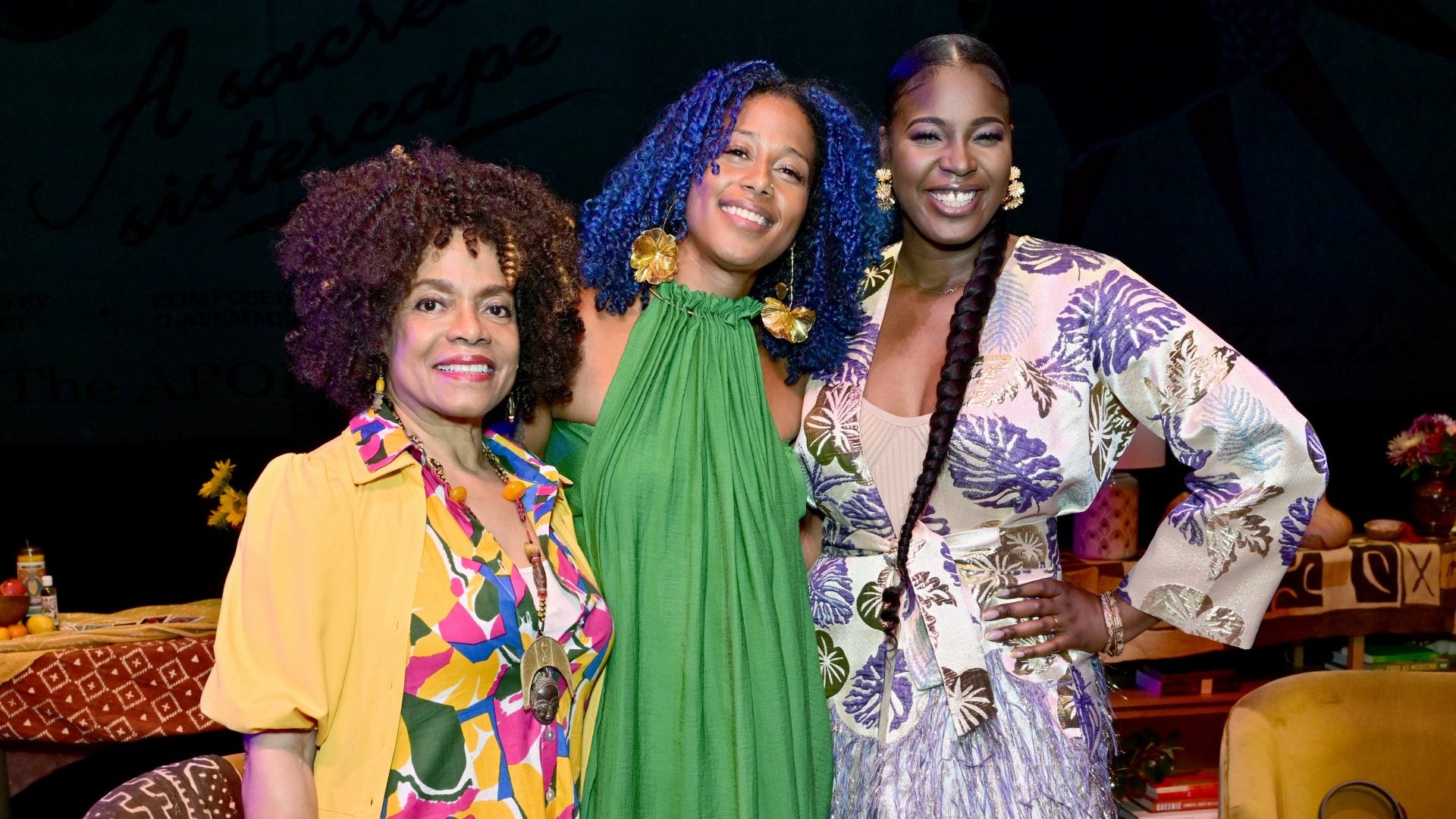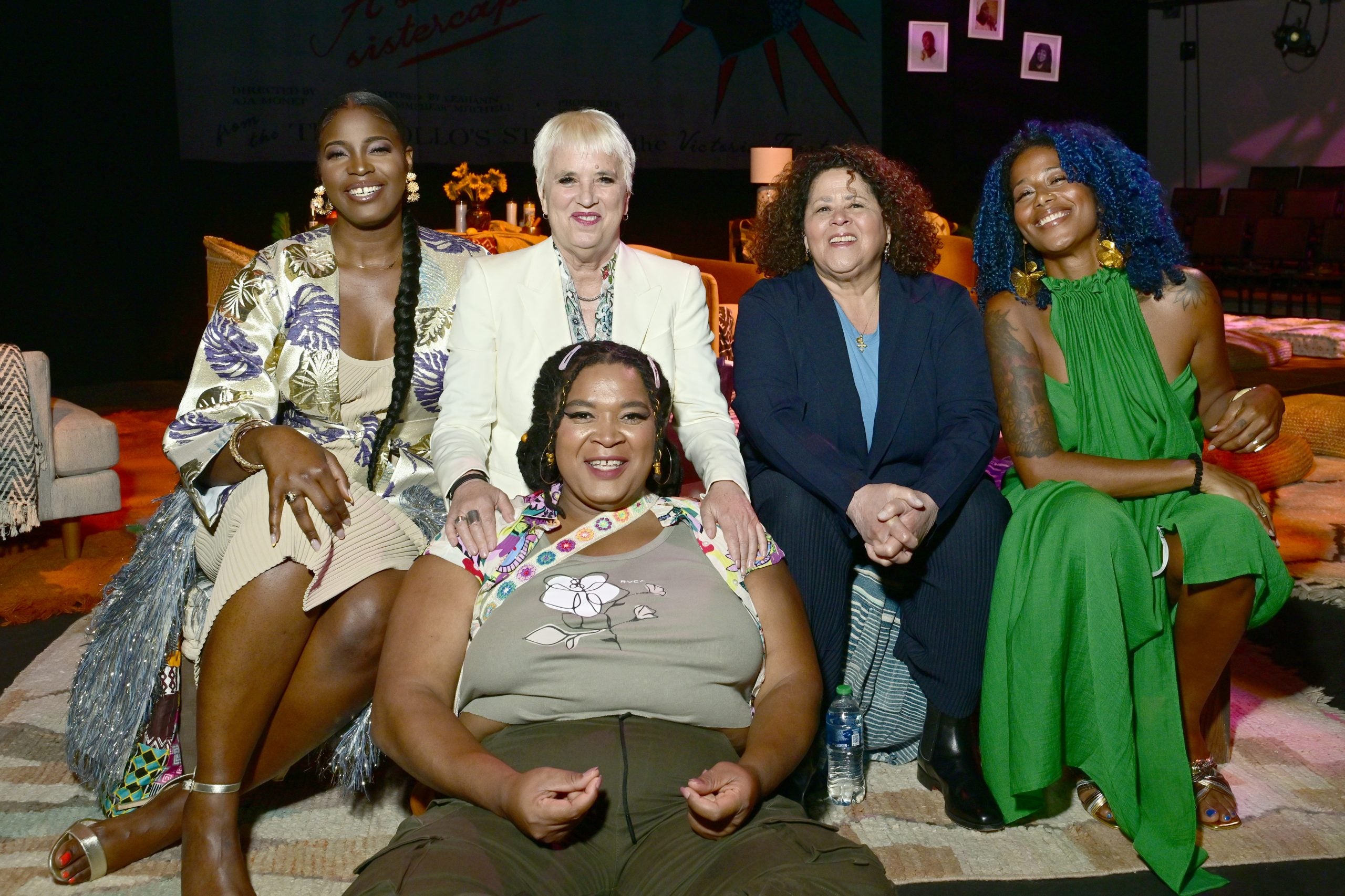
It’s unfortunate that violence against Black women has long been a problem, making movements like #SayHerName so important. This reality is what inspired the audio play, Voices. The Vagina Monologues and V-Day creator, V, formerly Eve Ensler, collaborated with Aja Monet, the play’s director, composer Leahann “LaFemmebear” Mitchell and producer Hollis Heath to take listeners on a sonic journey, via stories from Black women that will heal your soul.
The audio play—which runs for about one hour—can be found on all streaming platforms, allowing you to access it from your home, on the go or wherever you’re most comfortable. I felt lucky that my first time hearing the moving work was among a supportive community at the Apollo Theatre, for the private debut. Upon entering the space, I immediately felt held, thanks to seeing other Black and Brown individuals appreciating the soulful tunes and the calming aromas.
As we took our seats, we received headphones and eye masks (which I recommend using when you listen, too), so that everyone could sink deeply into the sensorial experience and truly center the voices and stories distraction-free. These Black femmes (named in the graphic below) so beautifully and vulnerably shared their experiences with pleasure (or lack thereof), abuse and more accompanied by perfectly paired melodies.

When you press play, don’t be surprised if you laugh, cry or do both—sometimes simultaneously. Definitely expect that you might reflect on your own experiences. Personally, I was drawn in from the beginning. However, midway through the fifth piece, “Untitled,” written by Dalychia Saah and performed by Zonya Love Johnson, which was all about her first time feeling like she experienced true pleasure, which she poetically compared to “flying a plane,” I was driven to tears.
Why? While it wasn’t necessarily the most categorically “sad” piece in the play, Johnson’s joy while performing moved me deeply, but also left me with many questions. Was I crying because I rarely hear us, Black women, speak on pleasure in such a positive way? Was it because I, too, have had several experiences where I’d felt like I had to “fake it”? Had I not given myself permission to center myself in intimate experiences? The list went on and on in my head.
As the play progressed, I wavered between grief and joy. But I did not leave feeling heavy or discouraged. If anything, once the audio play ended, I felt lighter, hopeful and empowered to use my own voice. I was reminded that when one of us speaks up (or in this case, many of us) for ourselves and our rights, we’re speaking for all of us. Not just because we share similar experiences much of the time, but also because, by doing so, we’re giving each other the permission and the support to tell our stories in our own way.

Monet—who is Grammy-nominated for her poetry album, when the poems do what they do— put it so eloquently when we spoke on the phone. “This is an invitation to listen and learn more about our stories,” she told me. “There’s so much more to bear witness to. There’s so much more to tell. I hope this project creates new opportunities for more art like this to be made.”







And when it came to the process behind creating this game-changing auditory experience, which began to bloom in 2020 after the horrific murder of George Floyd, Monet shared that the team reached out to Black women in their communities via social media and listening tours. “We asked ourselves, ‘What are the communities, countries, neighborhoods, etc., that aren’t being listened to?’” The goal was to “listen and uplift,” she said. After all, art has long been a true balm for Black women. As Monet put it, “I think living through another’s vulnerability and expression is so healing.”
Voices is now available on all streaming services.

Voices is now available on all streaming services.






